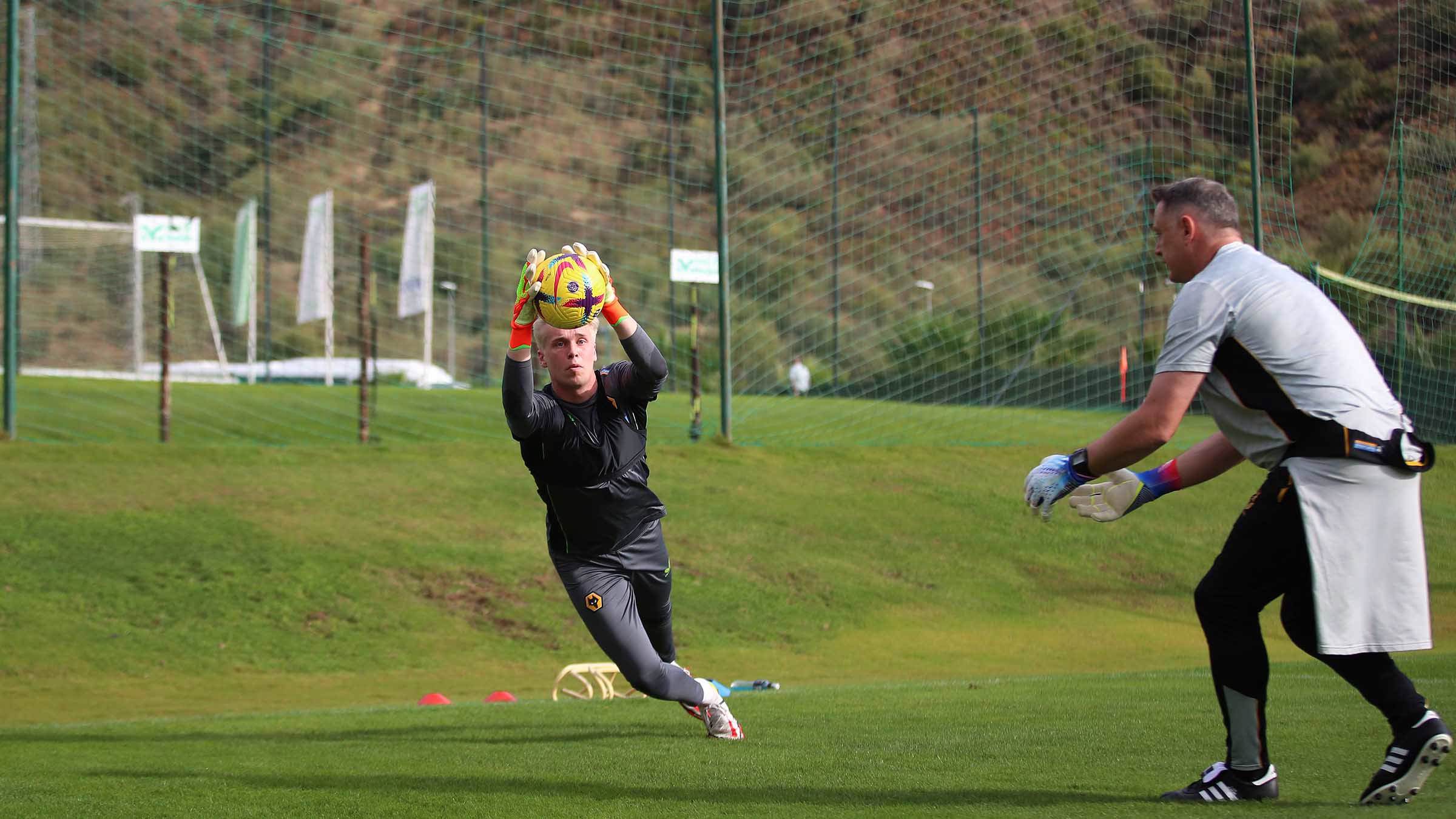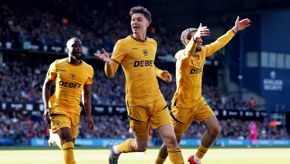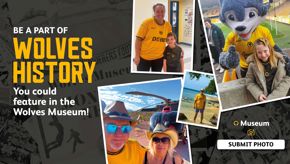The first-team goalkeeping coach, who will remain at the club under new head coach Julen Lopetegui, has upgraded the department by bringing in a trio of experienced coaches to improve opportunities for stoppers within the club’s academy.
Scott Bevan, Jon Flatt and Phil Smart have all joined the club to work with each level of the academy, allowing the club’s younger goalkeepers to receive the same coaching and education as the first-team, giving them the best possible opportunity to enjoy a career in the game.
Bevan, once a goalkeeper for the likes of Torquay United and Bristol Rovers, was previously goalkeeper coach at Birmingham City, where he worked with Roberts, and is on the staff of the Philippines national team, and will now work with Wolves’ under-21s and head up the club’s academy goalkeeping department.
Flatt is a product of the Wolves Academy himself, having joined at the age of eight and enjoyed loans at Cheltenham Town and Barrow amongst others, but stepped into coaching with Aston Villa at a young age and spent two years as a foundation and youth development coach, before making the move to Wolves.
Smart moves across the West Midlands from West Bromwich Albion, where he has led on academy goalkeeping coaching, having held a similar role at Shrewsbury Town previously, and now comes in at Wolves to work with age groups under-9s to under-16s.
Having welcomed them all to the club before joining up with Wales for the World Cup in Qatar, Roberts said: “We’ve revamped the goalkeeping department, it’s not just a one-man job anymore and the three of them are here because they are all very good at what they do.
“We’re all going to be coaching from the same programme, so all goalkeepers are getting the same messages and language as they go through the age groups. The aim is to produce goalkeepers like Wayne Hennessey, Matt Murray and Carl Ikeme again. I’ve done it before at Arsenal and Swansea, and the programme I’ve used has had success, and we want to start doing it here now.
“If you look at our last two goalkeepers, the club paid money for both Rui Patricio and Jose Sa, but I believe if you have the right people and academy plan in place, you’ll get players through. If they’re not good enough for our first-team, we still want them to have careers in the league, but the main aim is to find a couple of special ones for our first-team.”
Roberts arrived at the club in the summer of 2021 and across the course of his first campaign, integrated academy players into his first-team preparations, during the week in training and as a third goalkeeper on a matchday, providing support during the warm-up, while providing invaluable experience at the same time.
Now Roberts will work closely with Bevan, as he manages the under-21s goalkeepers, and will continue to fall back on that group to support Sa and Matija Sarkic on a day-to-day basis, which is the primary way youngsters will develop, in his opinion.
“When I came in, I inherited a lot of goalkeepers at the same age, and a lot weren’t training with the first-team. I started taking a third choice goalkeeper home and away, so all the academy boys had a taste of a first-team environment, and that’s part of the learning process.
“You’re going out there as a young kid in front of a crowd, it can be daunting, and the point is after a while they won’t know the crowd is there, because they focus on their job. Part of the development is coming in, learning the programme, and if they’re good enough they’ll train with the first-team, otherwise we’ll look to get them on loan if they’re physically ready.
“They need to be put in decision-making situations. I expect them to make saves, but it’s about coming for crosses, dealing with balls over the top, how they play out from the back, how they go longer. They have to be ready though, we’ve sent goalkeepers out and after a month they’ve got a strain because they’re going long a lot, so to be physically ready is a massive thing, and this change will help them get there.”

While the restructure begins with coaches, Roberts has plans to develop the department further, to increase the support young goalkeepers have, and a number of specialist roles will be filled in the coming months, with Roberts and the academy department bringing in a wide range of support for the club’s younger talents.
“We are looking into a goalkeeping specific sports scientist, who will build the physicality of our boys from age ten to first-team, helping their development. We’ve got the club’s nutritionist helping their education – the role is very physical, so how we eat and how we rest is massively important – the energy system needs to be refuelled in the right way. We’ve also got a goalkeeper specific analyst, who is going to be working with the first-team, 21s and 18s, so everyone is getting the same information going into games.
“We’ll get a goalkeeper specific scout. Now our scouts watch various positions, but we need someone with goalkeeping knowledge looking at targets. If scouts see a goalkeeper, instead of coming to me, they’ll go to our goalkeeping scout, who will go and watch them, and make decisions that way. The goalkeeper role is different to other players, we’re a special breed, and need a plan in place to find the individuals out there.”
The ultimate target for Roberts and the whole academy is to produce players for first-team football, so the restructure is focused around giving all the tools and support to the players during the week, in the hope that they learn themselves when across the white line on a weekend.
“We do stuff on the grass, but there’s a lot going on. We’ve got a psychologist, so we get them to look at what they’re going to face, and everyone has different opinions, which is what you want. We’ll get conversations and disagreements going.
“The most important thing is decision making, whether to come for the cross, whether to catch, punch or parry – top level players are the best decision makers. I’ll show them best practices in meetings for every situation, and they’ll learn it, but I need them to experience it and see how they do in that situation, and if they make a mistake, recognise it and rectify it. That’s how you improve and that’s our aim here.”












